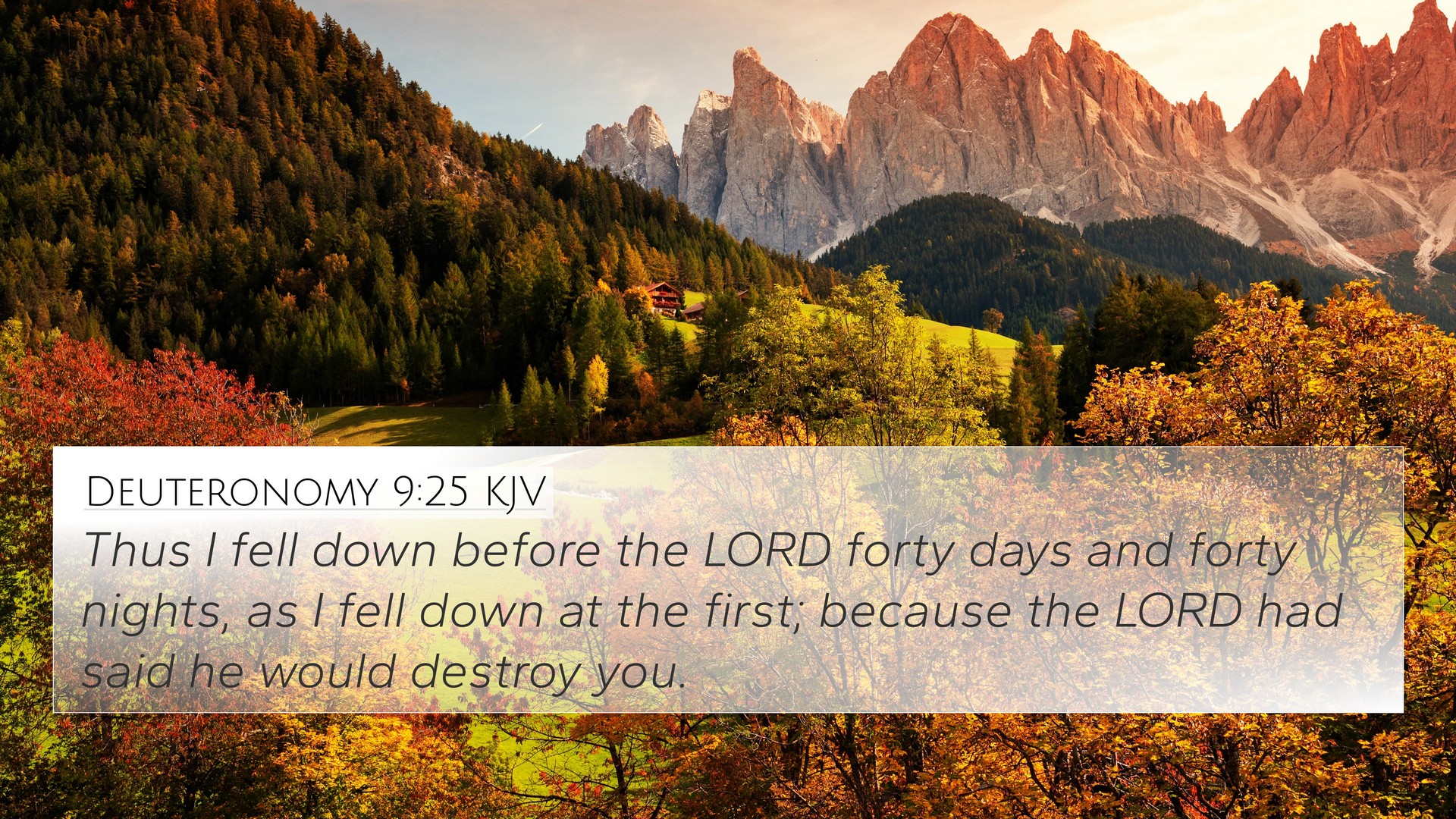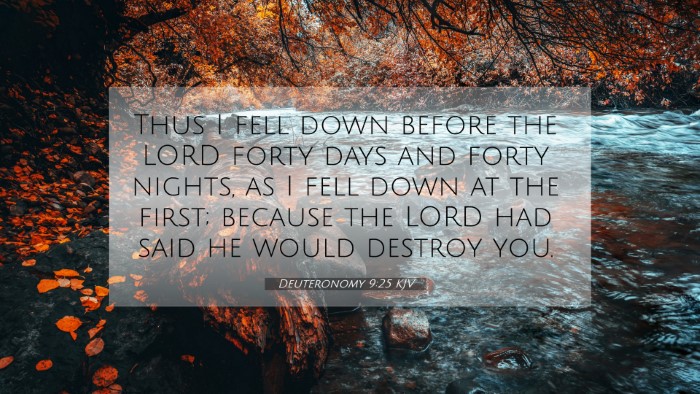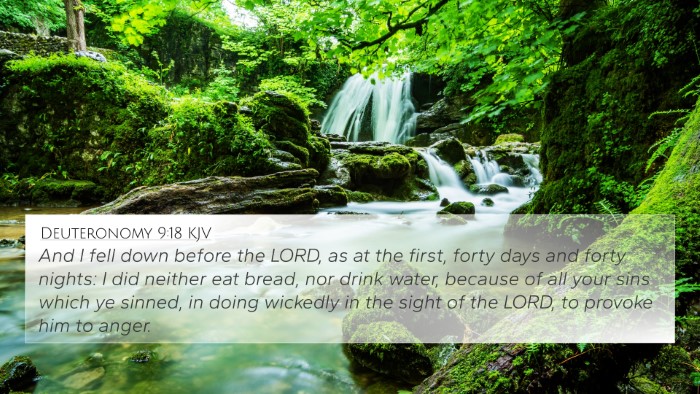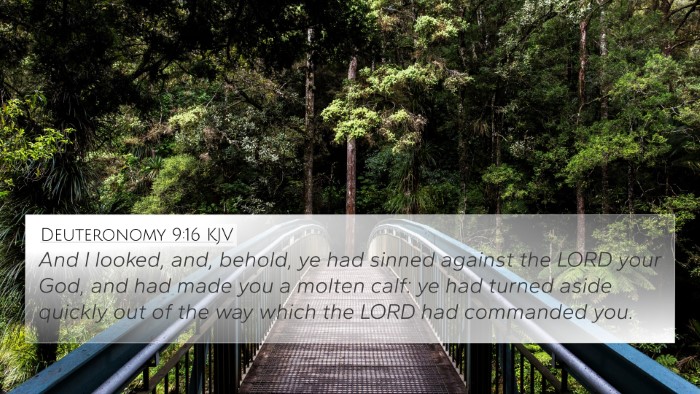Meaning and Explanation of Deuteronomy 9:25
Deuteronomy 9:25 states: "Thus I fell down before the LORD forty days and forty nights, as I did first; because the LORD had said he would destroy you." This verse recounts Moses' intense intercession for the Israelites, demonstrating his profound dedication and role as their mediator before God.
Context of Deuteronomy 9:25
This passage is located within a larger narrative where Moses reflects on the serious disobedience of the Israelites after receiving the Ten Commandments.
Insights from Public Domain Commentaries
- Matthew Henry's Commentary:
Henry emphasizes Moses' humility and commitment in falling before God on behalf of the people. He notes that Moses’ actions symbolize a profound sense of responsibility for the people's sinfulness and their need for Divine mercy.
- Albert Barnes' Notes:
Barnes highlights the significance of the "forty days and forty nights," relating it to other instances in the Bible where similar periods symbolize completeness and intense spiritual activity, as seen in the story of the Flood and Jesus' fasting in the wilderness.
- Adam Clarke's Commentary:
Clarke points out the importance of prayer and intercession, suggesting that Moses’ action serves as an example for believers today regarding the power of persistent prayer in the face of calamity.
Thematic Connections
This verse connects deeply with themes of intercession, mercy, and humanity's frailty. It leads one to explore several related scripture passages that echo these themes:
- Exodus 32:11-14: Moses' plea for Israel when God threatened to destroy them.
- Numbers 14:13-19: Moses again pleads for mercy on behalf of the Israelites.
- 1 Timothy 2:1-4: The call for believers to make intercessions and prayers for all people.
- James 5:16: The effectual prayer of a righteous man avails much, reflecting the power of prayer like that of Moses.
- Ezekiel 22:30: God sought for someone to stand in the gap, exemplifying the role of an intercessor.
- Hebrews 7:25: Jesus as the ultimate intercessor who saves completely.
- Romans 8:34: Christ intercedes for us, connecting to the role Moses played.
Cross-Referencing Biblical Texts
Understanding Deuteronomy 9:25 can be enhanced through the practice of cross-referencing. Here, we engage in a comparative Bible verse analysis to link various scriptures that highlight similar themes:
- Comparative Theme: Intercession
- Exodus 32:31-32: Moses' additional willingness to be blotted out for his people.
- Ephesians 6:18: Encouragement to pray in the Spirit for all saints.
- Comparative Theme: Mercy
- Psalm 51:1: Asking for God’s mercy parallels Moses' plea for Israel.
- Micah 6:8: God's desire for mercy, reminding us of His character.
Tools for Bible Cross-Referencing
To enhance your understanding of scripture and explore thematic Bible verse connections, consider utilizing the following resources:
- Bible Concordance: An index that provides the location of various words and themes in the Bible.
- Bible Cross-Reference Guide: Tools available for finding and studying related verses.
- Comprehensive Bible Cross-Reference Materials: Collections that facilitate in-depth studies.
Conclusion
Deuteronomy 9:25 serves as a profound reminder of the power of intercessory prayer and the mercy of God. By cross-referencing with related verses, believers can draw deeper insights into faith, responsibility, and divine compassion.
For anyone looking to explore how Bible verses relate to each other and identify connections between scripture, this passage exemplifies the richness of scriptural cross-referencing in Bible study.




